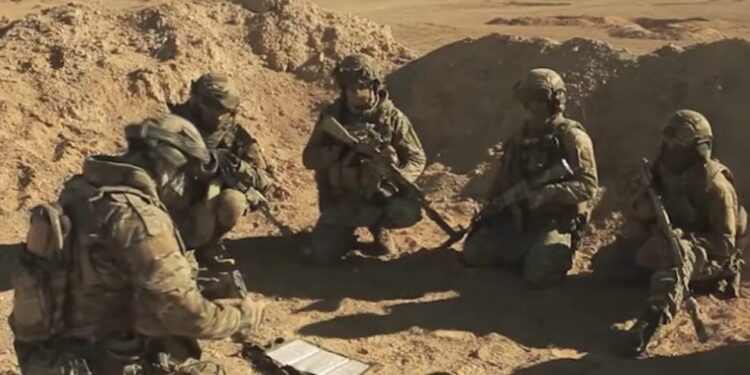Russia’s presence in Africa has taken on a new shape. For years, the Wagner Group, a private military company once led by Yevgeny Prigozhin, was the Kremlin’s key security instrument on the continent. Wagner carved out influence in fragile states by providing regime protection, military training, and battlefield support, often in exchange for lucrative mining rights and political influence.
However, everything changed in August 2023 with Prigozhin’s death. The Kremlin acted swiftly, dismantling Wagner’s semi-autonomous empire and reconstituting it as the African Corps, an entity which falls under Russia’s Ministry of Defense and is now fully controlled by the Russian state. This marks a clear pivot in Moscow’s long-term strategy in Africa and formalises Russia’s military footprint on the continent.
A Brief Background of Wagner’s Footprint in Africa
The Wagner Group’s African journey began in Sudan in 2017, where it secured gold mining concessions alongside training security forces (Sukhankin, 2019). By 2018, Wagner expanded into the Central African Republic (CAR), offering personal protection to President Touadéra and engaging in combat against rebel factions, while controlling diamond mines (Stronski, 2020). Its reach soon extended to Libya and Mozambique, and the Sahel region, particularly Mali and Burkina Faso, where Russia positioned itself as an alternative to traditional Western security partners amid rising jihadist threats (Council on Foreign Relations, 2023; DIIS, 2025).
Wagner’s strategic objectives in Africa included establishing a military foothold in North Africa to threaten the North Atlantic Treaty Organisation (NATO) and to gain control of Mediterranean maritime traffic, enhancing Russia’s global stature by positioning itself as a key player despite its international isolation and supporting authoritarian regimes to undercut democracy and gain influence (CISA, 2024).
However, Wagner’s semi-private status came with a price. The group operated with blurred accountability and inconsistent command, and was frequently implicated in human rights abuses, such as the notorious 2022 Moura massacre in Mali (United Nations, 2022).
| Country | Year Entered | Main Roles | Status |
| Sudan | 2017 | Security training, gold mining | Ongoing (African Corps) |
| CAR | 2018 | Regime protection, rebel fighting, diamond/gold mining | Ongoing |
| Libya | 2019 | Military support for Haftar, oil security | Ongoing |
| Mozambique | 2019 | Counterinsurgency in Cabo Delgado | Failed/withdrawn |
| Mali | 2021 | Counterterrorism, regime protection | Ongoing |
| Burkina Faso | 2022 | Junta support, security presence | Expanding |
| Madagascar | 2018 | Election interference | Past activity |
| Guinea | 2018 | Mining, political advisory | Limited |
| Niger/Chad | 2023–2024 | Influence operations | Emerging |
The transition to the African Corp: What’s New?
The transition to the African Corps was not simply a cosmetic rebrand. It reflects a fundamental reorganisation of Russia’s African operations along three main lines.
- State Integration: Gone is the plausible deniability that Wagner’s murky structure provided. The African Corps now reports directly to Russia’s Ministry of Defence, under the General Staff, ensuring tighter control and alignment with Moscow’s broader foreign policy (Kirchgaessner et al., 2023).
- Strategic Continuity with New Management: The quid pro quo remains the same, security support for resource access and political backing. But contracts and profits are now managed by the state, funnelled directly to Kremlin coffers.
- Diplomatic Repositioning: Russia now portrays its engagement as formal state-to-state partnerships, distancing itself from the Wagner mercenary label. This is especially timely as Western military forces retreat from the Sahel, opening space for Russia to present itself as a stable, long-term ally for regimes skeptical of Western motives (Al Jazeera, 2023)
Why the African Corps Matters
- Increased Accountability
With direct state control, any abuses or atrocities committed will implicate the Russian government, narrowing the Kremlin’s ability to deny responsibility (United Nations, 2022).
- Multipolar Power Dynamics
The African Corps embodies Russia’s role as a key player in the emerging multipolar world order, filling power vacuums left by Western disengagement and asserting influence on the continent.
- Export of Russia’s Governance Model
Beyond military support, the African Corps carries with it elements of Russia’s political style: centralised control, suppression of dissent and resource-linked patronage networks. As African leaders adopt these strategies to maintain power, the Corps may indirectly promote authoritarian governance practices across the continent.
Conclusion
The replacement of Wagner with Africa Corps may cement Russia’s role as a long-term military patron of authoritarian-leaning regimes in Sub-Saharan Africa, especially in the Sahel. The African Corps opens a new chapter in Moscow’s African ambitions. For local leaders, it offers immediate security aid and diplomatic clout. However, what could this mean, particularly for Africa itself? There are many concerns that this could engender more deeply embedded military presence, increase repression in conflict zones and pivot host countries towards Russia style military architecture. More worrying though is the fact that this could undermine democracy and free speech as well as strategic loss of autonomy in resource control and perhaps, foreign policy, thereby formalizing and expanding Russia’s presence in host nations.
For many observers, however, this raises a critical question: will Russia’s more disciplined and state-controlled presence foster long-term stability, or will it simply entrench authoritarian rule and external dependence under a different guise? It remains to be seen and time will tell.
References
Al Jazeera. (2023, January 22). Burkina Faso confirms end of French military presence. Al Jazeera.
CISA Newsletter. (2024, August 22). Wagner in Africa. https://cisanewsletter.com/index.php/the-wagner-group-and-africa/
International Crisis Group. (2020). Russia’s Wagner Group in Libya: Filling a vacuum or fuelling conflict? ICG Africa Report No. 257.
Kirchgaessner, S., Harding, L., & Roth, A. (2023, August 24). What next for Wagner after Prigozhin’s death? The Guardian.
Sukhankin, S. (2019). Russia’s Wagner Group in Africa: Influence, commercial concessions, and security footprint. Jamestown Foundation.
United Nations. (2022). Report of the Secretary-General on the situation in Mali (S/2022/446). United Nations Security Council.






























